7 Benefits Of Cashew Milk, Nutrition, Recipes, & Side Effects
Prepare it on your own because it is easy to make, healthy, and loaded with many benefits.
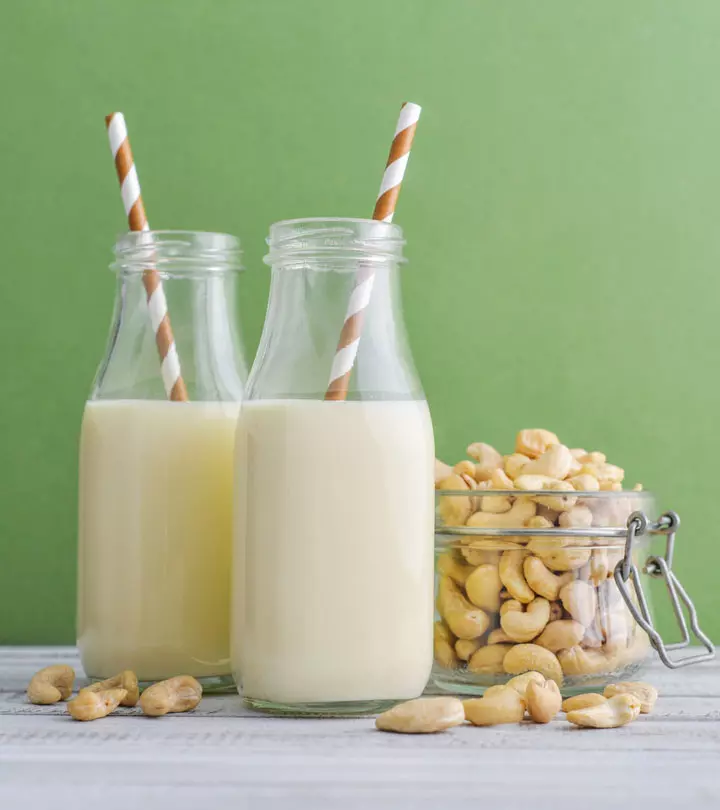
Image: Shutterstock
There has been a growing interest in plant-based cashew milk for quite some time. Preparing this low-calorie milk is as simple as blending cashews with water. It is both sweet and creamy and is a great alternative milk if you prefer non-dairy milk. Cashew milk is also rich in beneficial fatty acids, minerals, vitamins, and plant sterols, and is perfect for individuals with lactose intolerance. What potential health benefits and risks does cashew milk have? This article explores the nutrition, health benefits, potential risks, and easy-to-make recipes of cashew milk. Keep reading.
 Know Your Ingredient: Cashew Milk
Know Your Ingredient: Cashew MilkWhat Is It?
A non-dairy beverage made from whole cashew nuts and water.
What Are Its Benefits?
It may boost heart and eye health, aid in weight loss, improve blood sugar control, boost immune health, and prevent anemia.
Who Can Consume It?
Anyone can consume cashew milk in moderation.
How Often?
It can be safely consumed every day and boost health.
Caution
Some individuals might be allergic or sensitive to it and can experience weight gain or gastrointestinal issues.
In This Article
What Is Cashew Milk?
, a consultant nutritionist and food scientist, says, “When cashews and water are blended, the liquid that we obtain is cashew milk. It is thick, white, and creamy. It also has a nutty flavor to it.”
Cashew milk is a great alternative to cow or buffalo milk if you are a vegan or lactose-intolerant. Unsweetened cashew milk has higher levels of vitamin A and calcium than cow milk. It also has fewer calories and sugars, and makes delicious bakery products, tea, and coffee (1).
Clara Lawson, RDN and a medical doctor at USA Hemp, says, “Cashew milk is dairy-free and low-calorie milk that is nutritional, super creamy, and versatile and can be used in different ways.”
The taste and nutritional content of cashew milk may vary a little between brands. It comes in both sweetened (with added sugar) and unsweetened varieties. It is also fortified with calcium carbonate, vitamins E, A, and D2, salt, natural flavor, and lecithin (an emulsifier) in some cases (1). Let us find out what nutrients cashew milk can offer you.

Key Takeaways
- Cashew milk, made by blending cashews with water, is a nutrient-rich and creamy milk alternative.
- It may boost eye, heart, and bone health and prevent gallstones and anemia.
- Packaged cashew milk may have added sugar, so one should check the label before purchasing.
- Individuals with nut allergies or asthma should avoid cashew milk or consume it with caution.
Nutritional Information Of Cashew Milk
Commercially available cashew milk (100g) contains (2):
Calories | 79 kcal |
Protein | 2.2g |
Carbohydrates | 5.73g |
Total lipids (fat) | 5.29g |
Sodium | 51 mg |
Potassium | 84 mg |
Calcium | 9 mg |
Iron | 1.51 mg |
Magnesium | 35 mg |
Phosphorus | 66 mg |
Zinc | 1.26 mg |
Dietary fiber | 0.4g |
Cashew nuts are very rich in health-promoting unsaturated fatty acids as well as dietary fiber, protein, minerals, phytosterolsi Plant-based natural compounds that may lower cholesterol levels and reduce the risk of a heart attack and stroke. , and antioxidant phenolic compounds (3).
This graph shows the mean amino acid composition of sampled plant-based beverages and milk. Soy drinks contain free amino acid concentrations that are most similar to milk in terms of total protein content, and essential amino acids contain the highest mean value (35.1% ± 0.2%). In all other plant-based drinks, the concentration of amino acids was lower than those in soy drinks or milk.

Comparison Of Nutritional Values Of Cow Milk And Its Alternatives
Source: Comparison of nutritional composition between plant-based drinks and cow’s milkThe following section discusses the range of benefits the nutrient-rich cashew milk can offer. Take a look.
Health Benefits Of Cashew Milk
1. May Boost Heart Health
Dr. Banerjee says, “Cashew milk contains monounsaturated fatty acids, which are heart-healthy.” Cashew nuts may help decrease blood pressure levels significantly and benefit people with hypertensioni High blood pressure level, over 140/90, where the blood exerts too much force on the artery walls. , a common cardiovascular disorder. Additional benefits of cashew nuts include reducing LDL and total cholesterol levels, supporting heart health (4), (5).
Lawson adds, “Another great benefit of cashew milk is that it does not contain any cholesterol. People can drink it to reduce their increased levels of cholesterol that put them at a higher risk of serious heart conditions.”
2. May Help Reduce Weight

Cashew milk contains anacardic acid, a bioactive compound that limits fat accumulation during adipogenesis (the formation of fat cells). This may help you keep from gaining weight (6) and is a good choice for a healthy milk substitute.
Rizza Joyce Mira, MD, adds, “Cashew milk is low in calories compared to cow’s milk and even almond milk. This may be the best alternative for those on a weight-loss regimen. With only 25 calories per cup, this appears to be a calorie-saving food choice.”
3. May Help Reduce Cancer Risk
Several antioxidant compounds, including anacardic acid, cardanols, and cardols in cashew nuts may help reduce the risk of cancer (7).
Inositol and anacardic acid present in cashew nuts may also help inhibit the growth of cancerous cells and their movement to other body parts (8). Besides, these nuts also contain boron, which has the potential to reduce the risk of certain cancers (9).
4. May Promote Bone Health
Cashew milk contains calcium, magnesium, and vitamin D, all of which are essential for bone health. Vitamin D is vital for the absorption of calcium and phosphorus, which help contribute to strong, hard bones (10),(11).
It is recommended to consume 1000 to 1500 mg of calcium and at least 400 IU of vitamin D every day for maintaining bone health (11).
Lawson says, “Cashew milk is high in calcium, so it is really helpful in strengthening your bones and preventing diseases that are linked with calcium deficiency.”
5. May Prevent Gallstones
Cashew nuts may prevent the formation of gallstones and reduce diabetes risk. In a study, dietary data gathered over 20 years on 80,000 women was examined. The results concluded that those who ate one ounce of nuts (about two tablespoons) a week had a 25% lower risk of developing gallstones (12). This way, adding cashew milk to your diet may help prevent gallbladder diseases.
6. May Promote Eye Health

Dr. Banerjee says, “Cashews are rich in antioxidants and help promote eye health. They also prevent or slow down age-related eye conditions such as macular degeneration (that causes vision loss).”
Cashew milk is rich in bioactive and antioxidant compounds like β‐carotene, lutein, and zeaxanthin (13). A study conducted on over 100,000 subjects linked higher intake of lutein and zeaxanthin with a long-term reduced risk of age-related macular degenerationi An eye condition that damages a portion of the retina, causing blurred or no vision, particularly at the center of the retina. (AMD) (14). Besides, these carotenoids absorb the harmful blue light that enters the eye and reduce the risk of eye disease (15). β‐carotene, a precursor of vitamin A, may also help reduce cataract risk (16).
7. May Prevent Anemia
Lawson says, “Since cashews are also a good source of iron, cashew milk can help with anemia prevention too. For giving a healthy boost to your red blood cells, you can drink one glass of cashew milk every day instead of relying on iron supplements.” However, research on cashew milk is limited.
Now that you know the health benefits of cashew milk, let’s explore how you can easily make this nutritious drink at home in the following section.
How To Make Cashew Milk At Home
What You Need
- 1 cup raw cashews
- 4 cups water
Process
- Place the raw cashews in a bowl and cover them with water.
- Soak them overnight or for 4 to 6 hours.
- Drain and rinse the cashews thoroughly under running water.
- Combine 4 cups of fresh water with the soaked cashews in a blender.
- Blend on high speed for 1–2 minutes, or until the mixture is smooth and creamy.
- Refrigerate the cashew milk after pouring it into an airtight container. Shake well before each use, as natural separation may occur.
Cashews are a good addition to any diet, thanks to their high nutritional value and overall benefits. Let us now look at how you can add this healthy milk to your diet.
How To Add Cashew Milk To Your Diet
Dr. Banerjee says, “Cashew milk can be used as a substitute for cow’s milk in smoothies.”
Cashew milk is delicious and creamier than almond milk. Homemade cashew milk is just as delicious as store-bought cashew milk and can be added to any sweet or savory dish.
He adds, “While baking cakes, brownies, and muffins, cashew milk can be added. Breakfast cereals and cashew milk make a great combination. In Indian cuisines, people add cashew milk to stews and gravy to make them rich and thicker. It also improves the taste of the food item. Cashew milk can also substitute cow milk in sauces, ice creams, and milk-based beverages.”
Lawson says, “Cashew milk can be added to your diet in many ways because it has a creamy texture. For example, it can be added to smoothies, cereals, coffee, ice creams, chocolate drinks, and even baked foods.”
Denise, a culinary blogger, talks about the versatility of cashew milk, in one of her blog posts. She says, “I’ve never liked dairy milk, and though I love Asian-style soy milk, cashew milk is a delicious and welcome change. It makes a fabulous substitute for coconut or dairy milk in cooking and tastes fantastic with coffee, drinking chocolate, tea, and hot or cold breakfast cereal. Of course, the very first thing I tested it on was a cup of coffee and as you can see from the pictures, it gives the coffee a pretty head of creamy foam, or crema as the Italians call it. And you don’t even need a coffee machine (i)!”
The following section lists a few ways you can use cashew milk.
The following section lists a few ways you can use cashew milk.
 Quick Tip
Quick TipPopular Recipes With Cashew Milk
1. Creamy Cashew Milk Soup
What You Need
- Potatoes: 3 cups
- Butter: 2 tablespoons
- Leeks: 5
- Chicken broth: 4 cups
- Cashew milk: 1 cup
- Garlic powder: ½ teaspoon
- Ground black pepper: ½ teaspoon
- Salt: 1 teaspoon
How To Prepare
- Peel and slice potatoes thinly and set aside.
- Cut the leeks thinly and discard the dark green parts.
- Heat the butter in a large soup pot and sauté the leeks until they have wilted.
- Simmer the potatoes and chicken broth for about 20 to 25 minutes, or until the potatoes are tender.
- Puree the soup in a blender. Pour back into the pot.
- Add the cashew milk and mix well. Add the garlic, salt, and pepper.
- Season to taste and serve hot.
2. Cashew Milk Cake

What You Need
- Soaked cashews: 2 cups
- Cashew milk: 2/3 cup
- Cinnamon: 1 teaspoon
- Egg: 1
- Sugar: 2 tablespoons
- Coconut oil (melted): 2 tablespoons
How To Prepare
- Preheat the oven to 350°F.
- Blend all ingredients (except coconut oil) well.
- Add the coconut oil.
- Pour into a parchment-lined baking tray and bake for 22 to 25 minutes.
- Allow it to cool. Top with a topping or frosting of your choice.
3. Cashew Milk Ice Cream
What You Need
- Cashews (soaked overnight): 2 cups
- Strong coffee: ¾ cup
- Unsweetened cashew milk: 1 cup
- Maple syrup: ½ cup
- Vanilla extract:2 teaspoons
- Salt: ¼ teaspoon
How To Prepare
- Blend the cashews, coffee, and cashew milk in a high-speed blender.
- Mix in vanilla extract, maple syrup, and salt until the mixture is smooth and creamy.
- Add the ice cream mixture to an ice cream maker and churn until it reaches soft-serve consistency.
- Place ice cream in a container and freeze.
Both almond milk and cashew milk are plant-based and have similar characteristics. While they often can replace each other, which of the two is right for you?
Cashew Milk Vs. Almond Milk
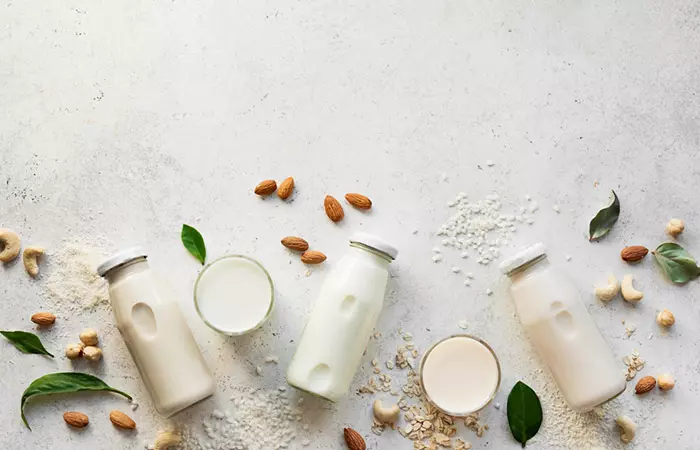
Lawson says, “Cashew milk and almond milk are produced in the same way; however, cashew milk has a more earthy taste than almond milk. When it comes to the nutritional value, they both are nearly the same.”
Mira says, “If you want a genuine milk flavor and texture with lesser calories, almond milk is one of your best options. It provides about 40 calories per cup. On the other hand, cashew milk is slightly creamier than almond milk, but it only has 25 calories in a single cup. Most of the calories in both almond and cashew milk come from good fat.”
Compared to cashew milk, almond milk benefits are too minute and a matter of personal preference. Nevertheless, both types of milk may not be suitable for every consumer.
She adds, “Unsweetened or unfortified almond and cashew milk are both low in terms of macronutrients. They offer almost equal nutrient density. So, if you are primarily aiming to cut your daily caloric intake, switching to nut milk instead of whole milk can be an excellent option to start. But for athletes, these types of nut milk fall short when it comes to fueling performance.”
 Quick Tip
Quick TipBoth cashew milk and oat milk are perfect alternatives to dairy milk. But which one is better? Find out in the next section.
Cashew Milk Vs. Oat Milk
Oat milk and cashew milk are two popular plant-based alternatives with their unique qualities and nutritional advantages. Cashew milk is made by blending cashews and water. It has a creamy texture with a hint of sweetness. It has a higher magnesium and sodium content compared to oat milk (2).
Conversely, oat milk is made by blending water and oats. It is naturally sweet and has a creamy, smooth texture. Oat milk has a higher calcium, vitamin D, and potassium content than cashew milk (17). All these benefits of oat milk make it a great choice for those seeking a nutrient-rich alternative.
Your choice of milk depends on your dietary preferences and culinary needs.
As stated, cashew milk is not suitable for everyone and may even cause a few side effects. Keep scrolling to find out what they are.
Potential Side Effects And Allergies

Cashews are a wonderful option for plant-based milk, but they are a type of tree nut milk, which is a major allergen.
Lawson says, “Cashews are one of the top food allergens that can cause severe food allergic reactions in some people. The allergen substances found in cashews can trigger asthma symptoms, so it is better for asthmatics to avoid it.”
Cashews can cause atopic dermatitis and rashes in some cases and anaphylaxis (can be fatal) in severe cases (18), (19). Consult your doctor if any of these symptoms occur.
Lawson adds, “As far as side effects are concerned, some brands of cashew milk may contain lots of added sugar and other additives, which are not good for your health. Therefore, make sure to check the label carefully before you buy any product of cashew milk.”
Choosing the right cashew milk can help you enjoy its benefits while minimizing potential risks associated with additives and allergens. Scroll down to learn how to select top-quality cashew milk.
How To Choose Quality Cashew Milk Products
Choose cashew milk with as few ingredients as possible, ideally just cashews and water, for the best results. Check for fortifications like calcium or B12 and choose unsweetened kinds to prevent additional sugars. You may also look for organic or non-GMO certifications and steer clear of superfluous thickeners or emulsifiers if you have sensitivities.
Infographic: Top 5 Benefits Of Cashew Milk
Cashew milk is a delicious option for those with lactose intolerance or following a plant-based diet. Its creamy texture and slightly nutty flavor make it a versatile ingredient in various recipes. But apart from its taste, it has an array of health benefits that may improve your overall well-being. Check out the infographic below for the 5 most impressive benefits of cashew milk you should know about. .
Some thing wrong with infographic shortcode. please verify shortcode syntaxCashew milk is a creamy, nutty, lactose-free alternative to whole cow milk. This plant-based drink is easy to prepare and packed with many essential nutrients. The benefits of cashew milk include strengthening the bones and promoting heart health. It is a good source of antioxidants and may improve your vision and reduce the risk of many eye-related disorders. You can substitute regular cow milk with cashew milk in smoothies, breakfast cereals, or coffee. However, it is not recommended to consume it in excess. Cashew milk may trigger allergic reactions or cause gastrointestinal issues. Consult your doctor if you experience any adverse effects.
Frequently Asked Questions
Is cashew milk better than normal milk?
Yes, cashew milk may be a better choice than normal milk if fortified. Store-bought cashew milk is generally fortified and has more calcium content compared to cow milk. It also helps reduce the risk of osteoporosis and calcium deficiency.
Is cashew milk toxic?
No, cashew milk is not toxic. In fact, it is loaded with many beneficial nutrients like proteins, vitamins, and minerals that can promote overall health if included as a part of the diet.
Does cashew milk increase weight?
No cashew milk doesn’t contribute to weight gain. In fact, when coupled with the right exercise and lifestyle habits, it helps in weight loss due to its anacardic acid content (a bioactive compound that limits fat accumulation)
Illustration: Benefits Of Cashew Milk, Nutrition, Recipes, & Side Effects
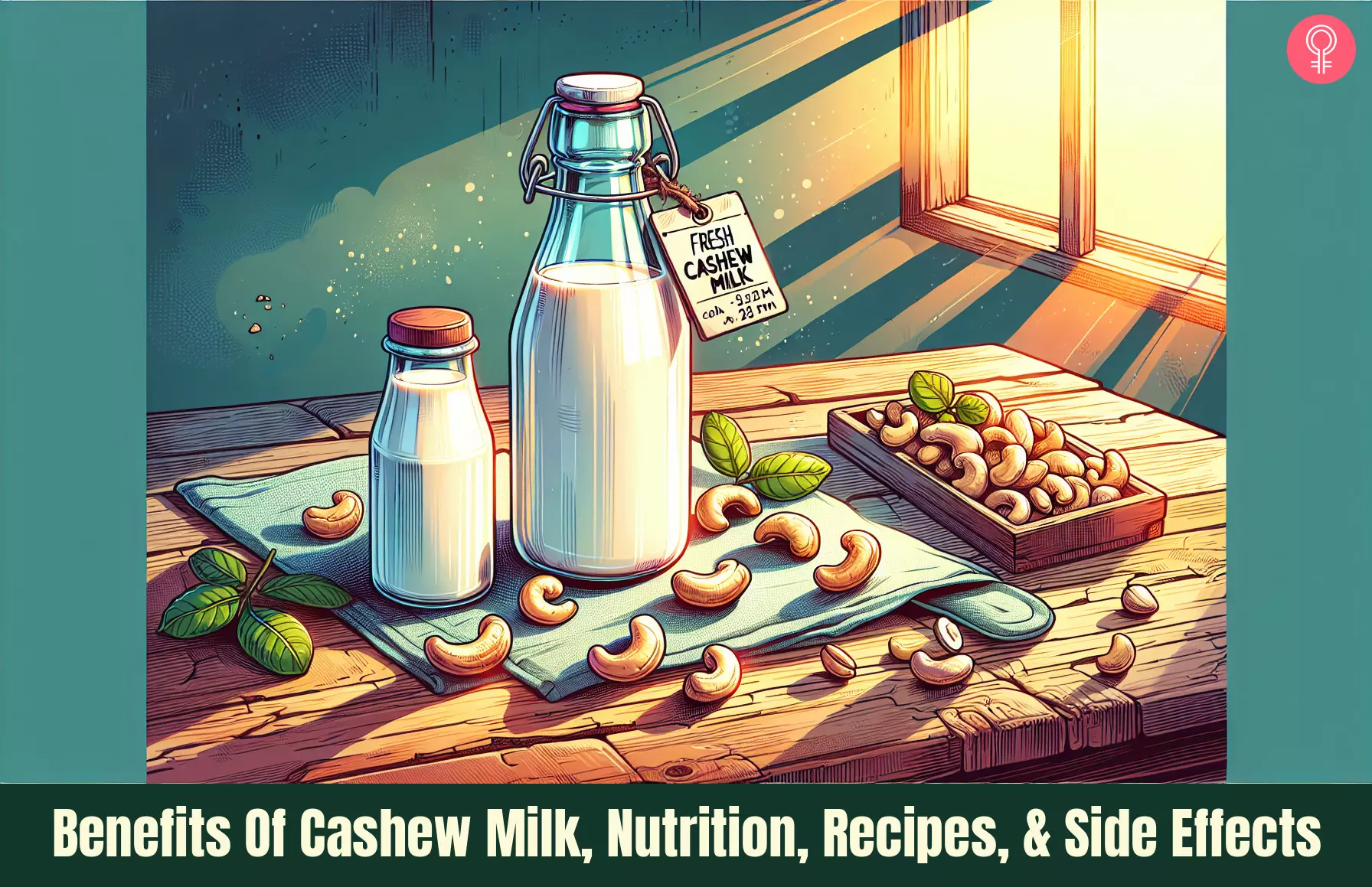
Image: Dall·E/StyleCraze Design Team
Learn about the amazing benefits of cashew milk. Due to its creamy texture and nutritional value, it is a great addition to your diet. Check out this video to know how.
Personal Experience: Source
StyleCraze's articles are interwoven with authentic personal narratives that provide depth and resonance to our content. Below are the sources of the personal accounts referenced in this article.
i. Cashew milkhttps://singaporeshiok.blogspot.com/2013/03/cashew-milk.html
References
Articles on StyleCraze are backed by verified information from peer-reviewed and academic research papers, reputed organizations, research institutions, and medical associations to ensure accuracy and relevance. Read our editorial policy to learn more.
- Plant-Based Milks: Cashew1
https://edis.ifas.ufl.edu/publication/FS413?downloadOpen=true - Cashew milk
https://fdc.nal.usda.gov/fdc-app.html#/food-details/2014635/nutrients - Cashew nuts (Anacardiumoccidentale L.) decrease visceral fat yet augment glucose in dyslipidemic rats
https://www.ncbi.nlm.nih.gov/labs/pmc/articles/PMC6907795/ - The Effect of Cashew Nut on Cardiovascular Risk Factors and Blood Pressure: A Systematic Review and Meta-analysis (P06-117-19)
https://www.ncbi.nlm.nih.gov/labs/pmc/articles/PMC6573847/ - Cashew consumption reduces total and LDL cholesterol: a randomized crossover controlled-feeding trial
https://pubmed.ncbi.nlm.nih.gov/28356271/ - Anacardic Acid Suppresses AdipogenesisThrough Inhibition of the Hsp90/Akt Signaling Pathway in 3T3-L1 Preadipocytes
https://pubmed.ncbi.nlm.nih.gov/34009020/ - Characterization of alkyl phenols in cashew (Anacardiumoccidentale) products and assay of their antioxidant capacity
https://pubmed.ncbi.nlm.nih.gov/16095792/ - Can nut consumption improve colon cancer survival?
https://www.ncbi.nlm.nih.gov/labs/pmc/articles/PMC6182034/ - Nutritional quality of almond canarium cashew and pistachio and their oil photooxidative stability
https://www.ncbi.nlm.nih.gov/labs/pmc/articles/PMC6400731/ - The metabolism and functions of vitamin D
https://pubmed.ncbi.nlm.nih.gov/3012979/ - Vitamin D and Bone Health
https://academic.oup.com/jn/article/126/suppl_4/1159S/4724783?login=true - Health Benefit of a Handful of Cashew Nuts (Anacardium Occidentale L.) to Prevent Different Disorders Like Diabetes Heart Disorders Cancer Weight Gain Gallstone Migraine Headache
https://gsbb.goa.gov.in/wp-content/uploads/2025/09/Gazette-Notification-of-Plantation-Scheme.pdf - Nutritional composition of raw fresh cashew (Anacardiumoccidentale L.) kernels from different origin
https://www.ncbi.nlm.nih.gov/labs/pmc/articles/PMC4779481/ - Intakes of Lutein Zeaxanthin and Other Carotenoids and Age-Related Macular Degeneration During 2 Decades of Prospective Follow-up
https://pubmed.ncbi.nlm.nih.gov/26447482/ - The role of carotenoids in human health
https://pubmed.ncbi.nlm.nih.gov/12134711/ - Association of vitamin A and β-carotene with risk for age-related cataract: a meta-analysis
https://pubmed.ncbi.nlm.nih.gov/25194611/ - Oat milk unsweetened plain refrigerated
https://fdc.nal.usda.gov/fdc-app.html#/food-details/2257046/nutrients - A remarkable food allergy in children: cashew nut allergy
https://pubmed.ncbi.nlm.nih.gov/34286322/ - Systematic review on cashew nut allergy
https://onlinelibrary.wiley.com/doi/full/10.1111/all.12401 - The effect of magnesium supplementation on primary insomnia in elderly: A double-blind placebo-controlled clinical trial
https://pubmed.ncbi.nlm.nih.gov/23853635/
Read full bio of Pallavi Jassal
Read full bio of Payal Karnik
Read full bio of Ravi Teja Tadimalla
Read full bio of Himanshi Mahajan






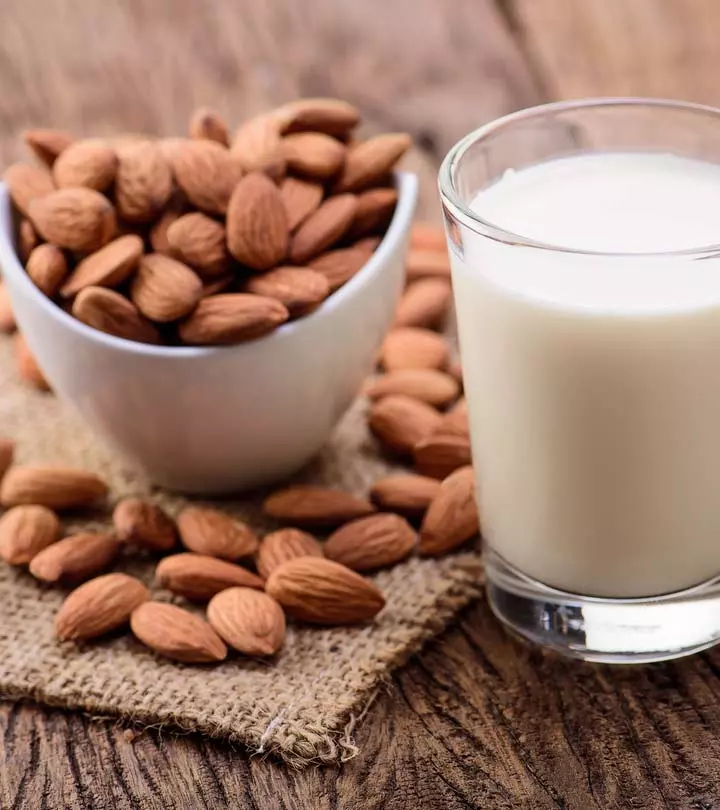
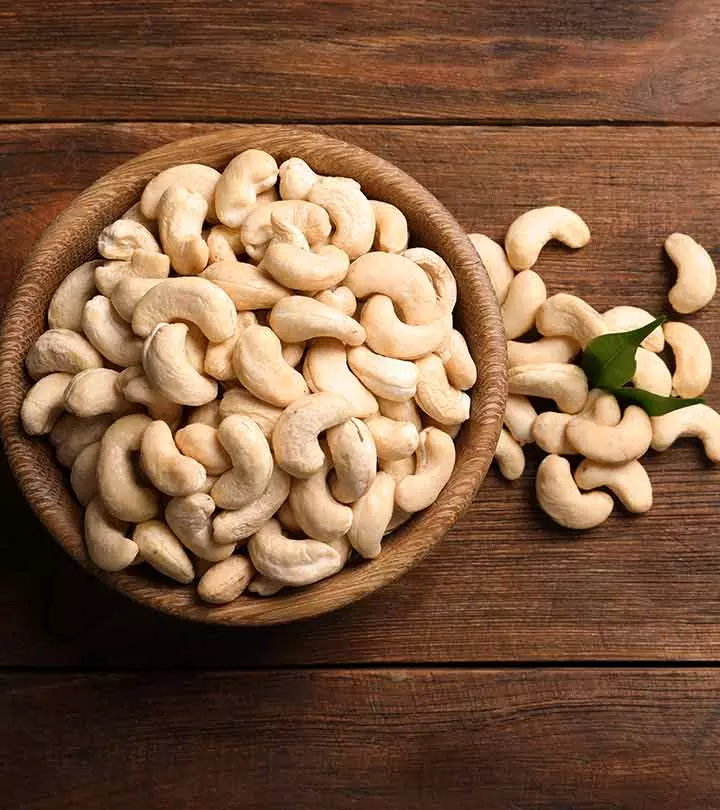
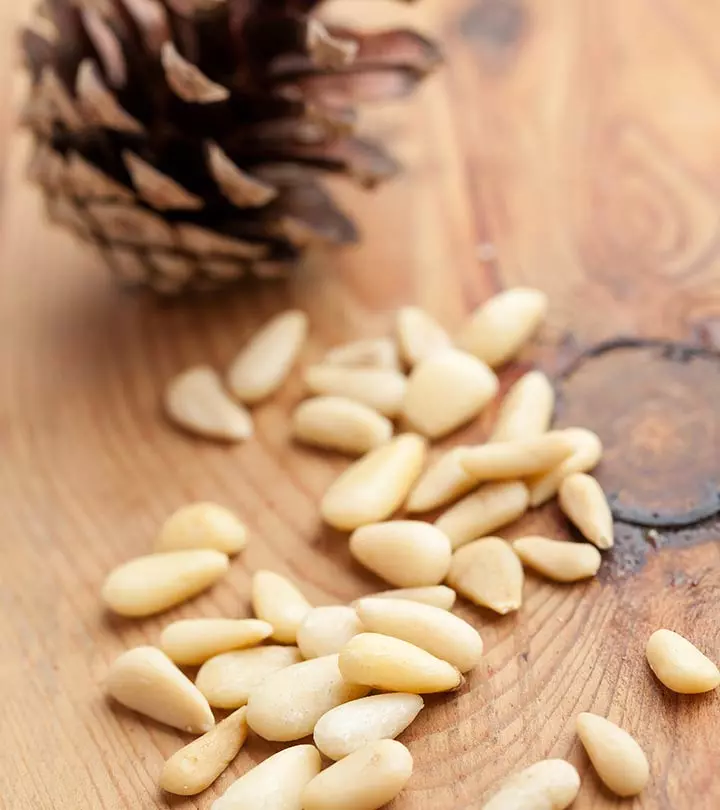
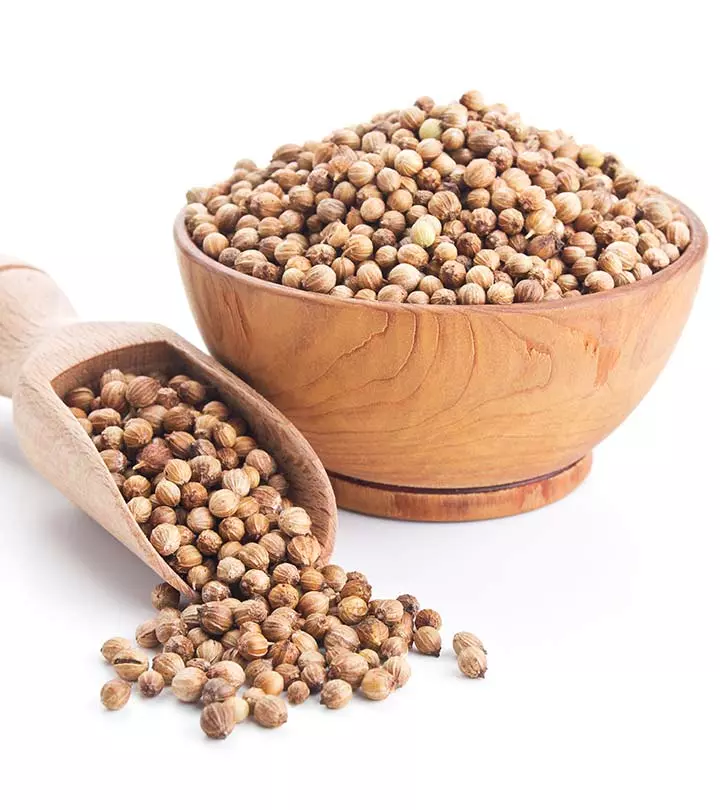
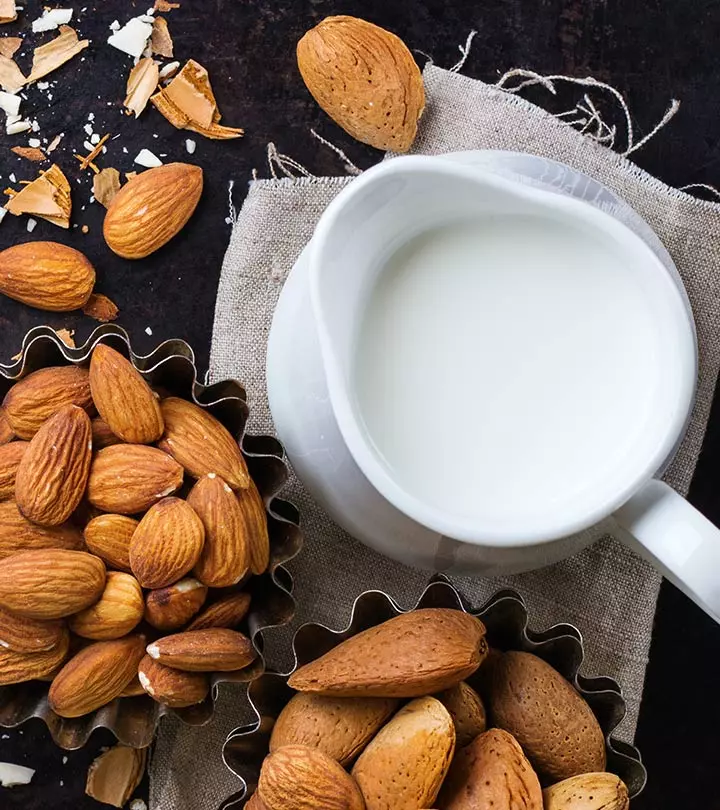
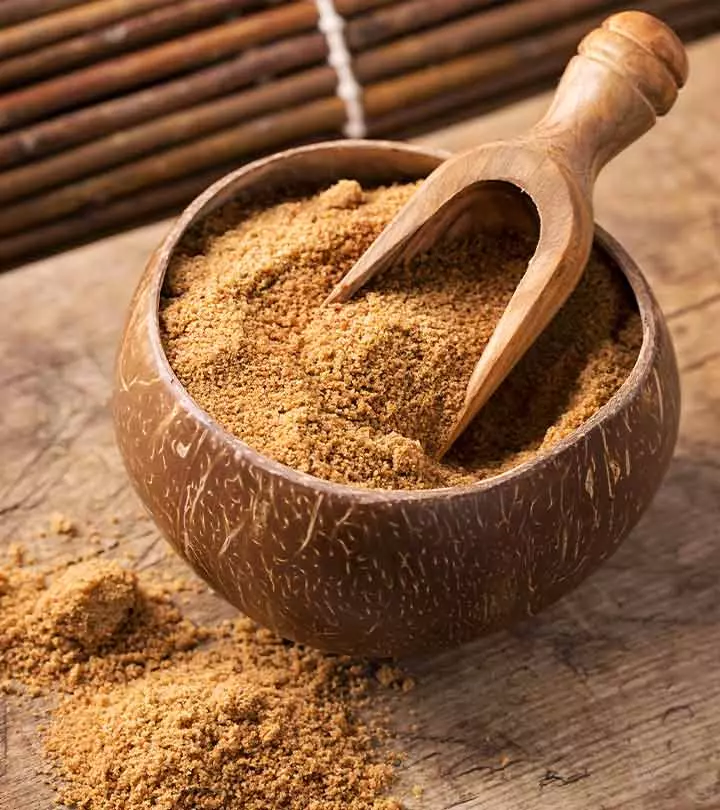
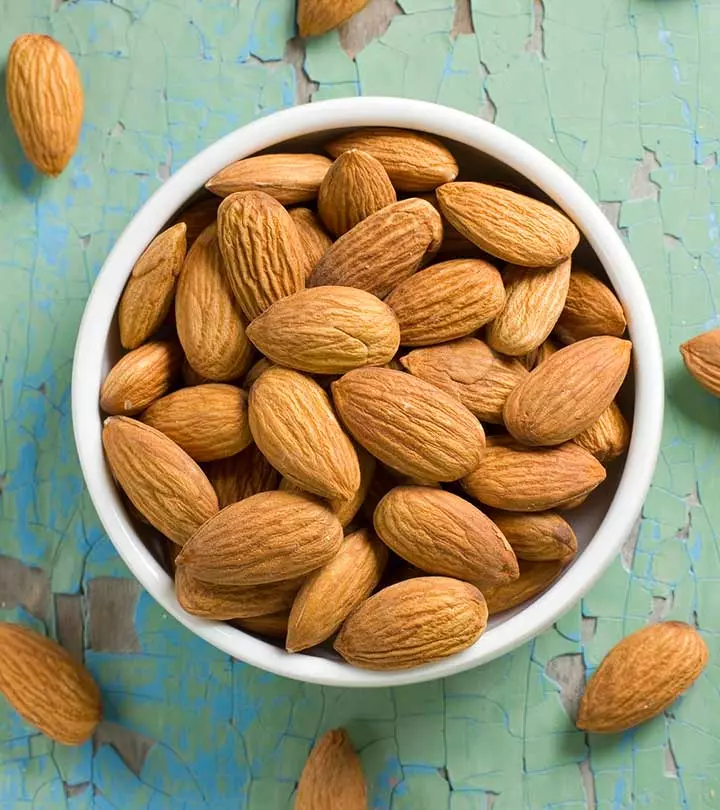

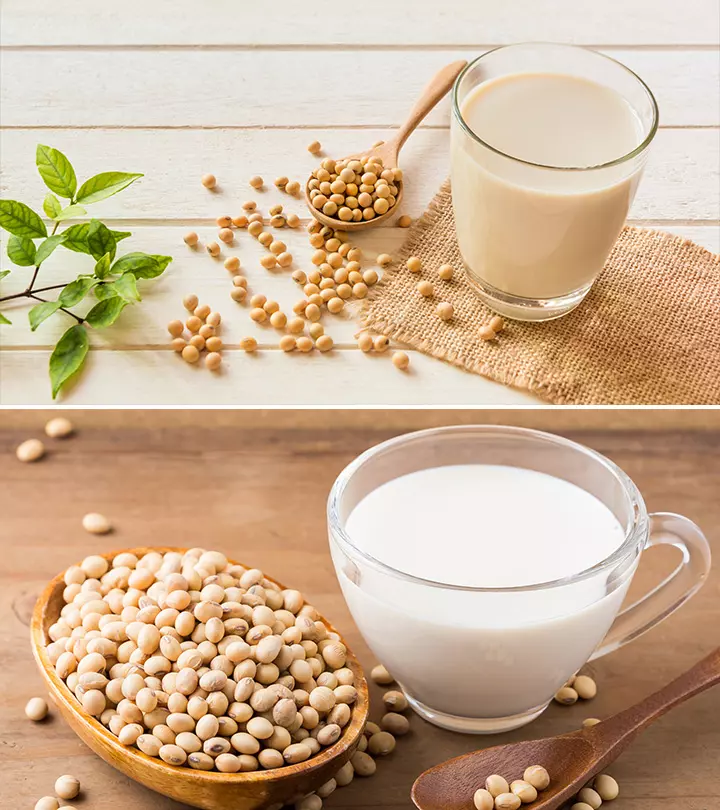
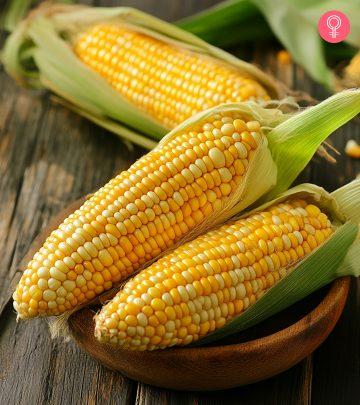

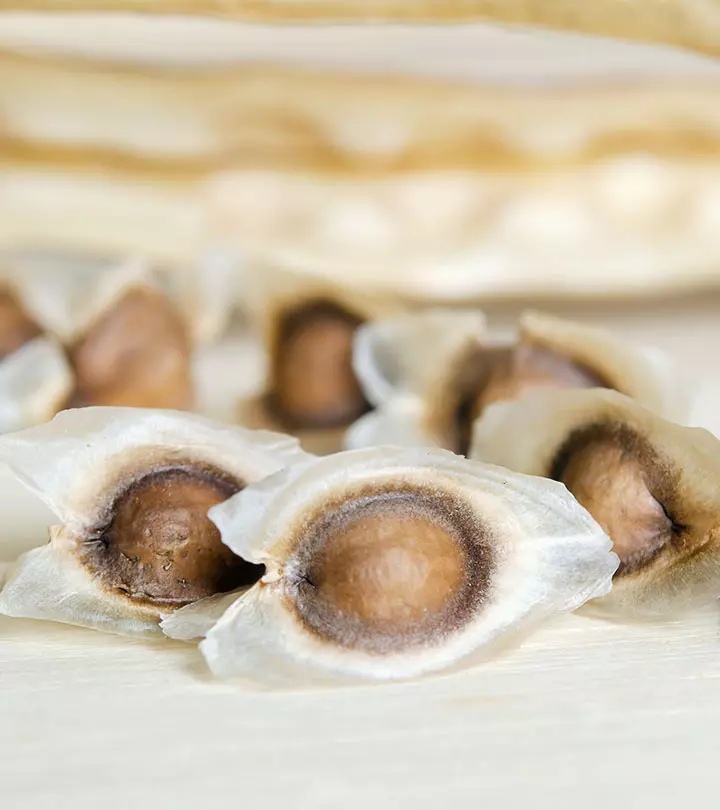

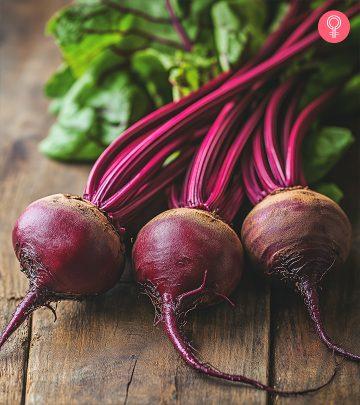

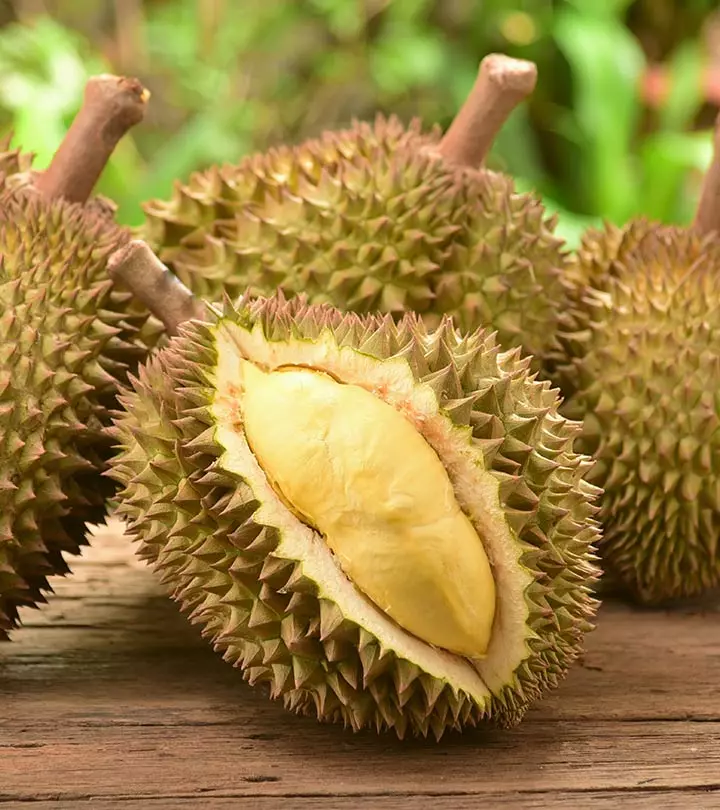




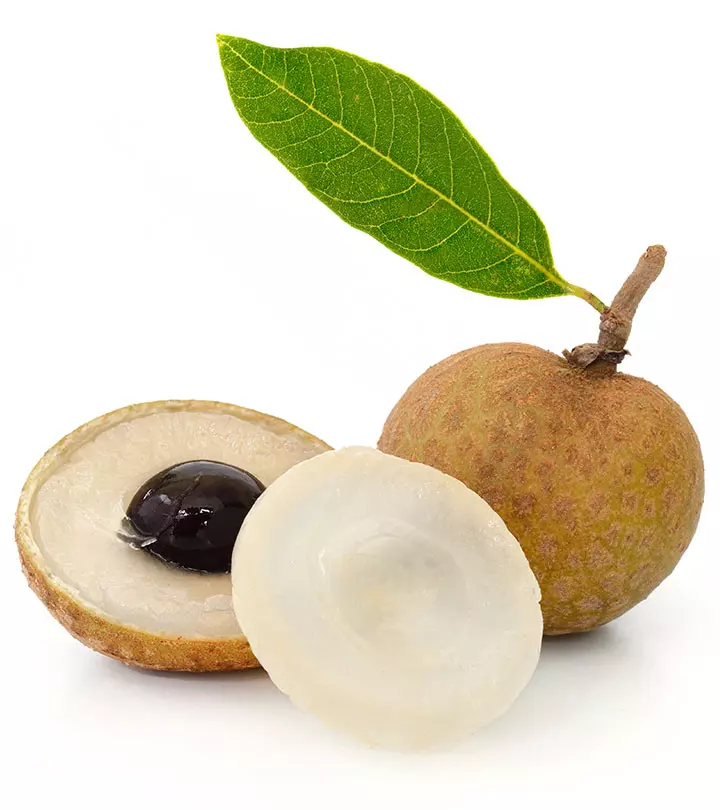
Community Experiences
Join the conversation and become a part of our empowering community! Share your stories, experiences, and insights to connect with other beauty, lifestyle, and health enthusiasts.